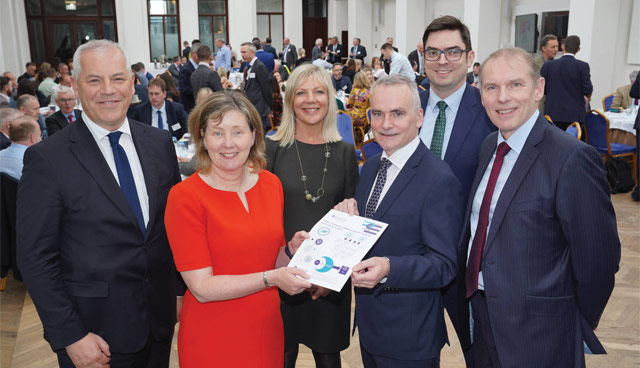Public Transport: A vital cog in the local economy

Translink’s Group Chief Executive Chris Conway outlines the positive economic impact of bus and rail service on towns and cities across Northern Ireland.
Public transport is necessary to reduce congestion, protect our environment, promote active travel and connect people to employment, education and more. Many thousands of people rely on Translink services on a day-to-day basis. What’s often overlooked, however, is the positive economic impact that Translink services have on communities across Northern Ireland.
Recent research on the economic impact of public transport, conducted by Grant Thornton, shows that directly and indirectly, Translink supports around 6,300 jobs locally, resulting in a total GVA of £198 million, including a direct impact of £238 million in annual turnover and almost 4,000 direct Translink jobs.
The report points to other significant impacts, including helping to reduce pollution and congestion, supporting social inclusion and enabling health, education and tourism, as well as driving economic growth. The report reinforced research from UITP, the International Association of Public Transport, which found that for every £1 invested in public transport, a further £4 is generated for our economy.
These figures help to establish public transport as a backbone of the local economy. The report indicates that 53 per cent of respondents identified public transport as key to accessing employment opportunities. Retail was identified as a beneficiary of public transport, with an average per-passenger spend of £46 per journey via public transport. Meanwhile, Translink’s role in supporting the hospitality industry was clear, with an average spend of £50 per person per public transport journey.
The report illustrates the impact of effective public transport. Additional bus and rail services are needed as a region grows and develops, and business success is dependent on people’s ability to access workplaces; businesses also require easy access to workers and trading partners; public transport is a vital part of this process. In rural areas, buses connect local businesses and amenities with a staff and customer base, as well as supporting tourist access to rural visitor attractions and connecting people to essential services. As Northern Ireland evolves, public transport will have an even greater role to play in connecting communities.
Public transport plays a vital role in moving towards a greener environment. Congestion has been steadily increasing in all our major cities, dramatically worsening air quality. Transport therefore has a key role to play in reducing emissions and meeting governmental objectives on environment and public health.
The Grant Thornton research takes place in the context of sustained success for Translink, with record passenger numbers across services during 2018/19. Since 2015/16, the number of passenger journeys on Translink services has increased significantly, by over 4.5 million.
However, it is important to place this recent success in the context of a challenging funding environment. In 2017/18, local public transport in Northern Ireland received funding of £84 per head, the lowest of all UK countries, and at 27 per cent of the UK average expenditure.
Translink services continue to be central to the daily lives of people across Northern Ireland, as well as being key to economic activity and social and environmental wellbeing. Our success during 2018/19, with the launch of Glider and the addition of around 3.5 million extra passenger journeys across the network, illustrates the necessity of public transport locally.
Translink will continue in our efforts to make public transport ‘first choice for travel’ for everyone in our community.
Translink
T: 028 9066 6630
W: www.translink.com






